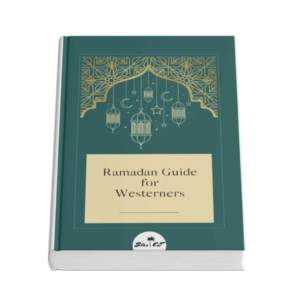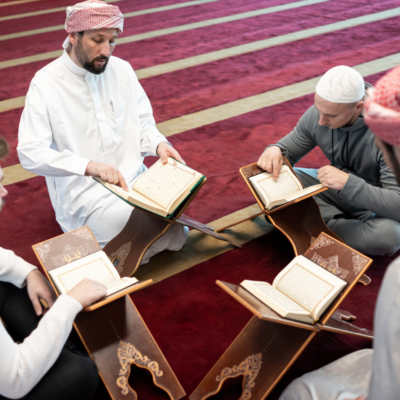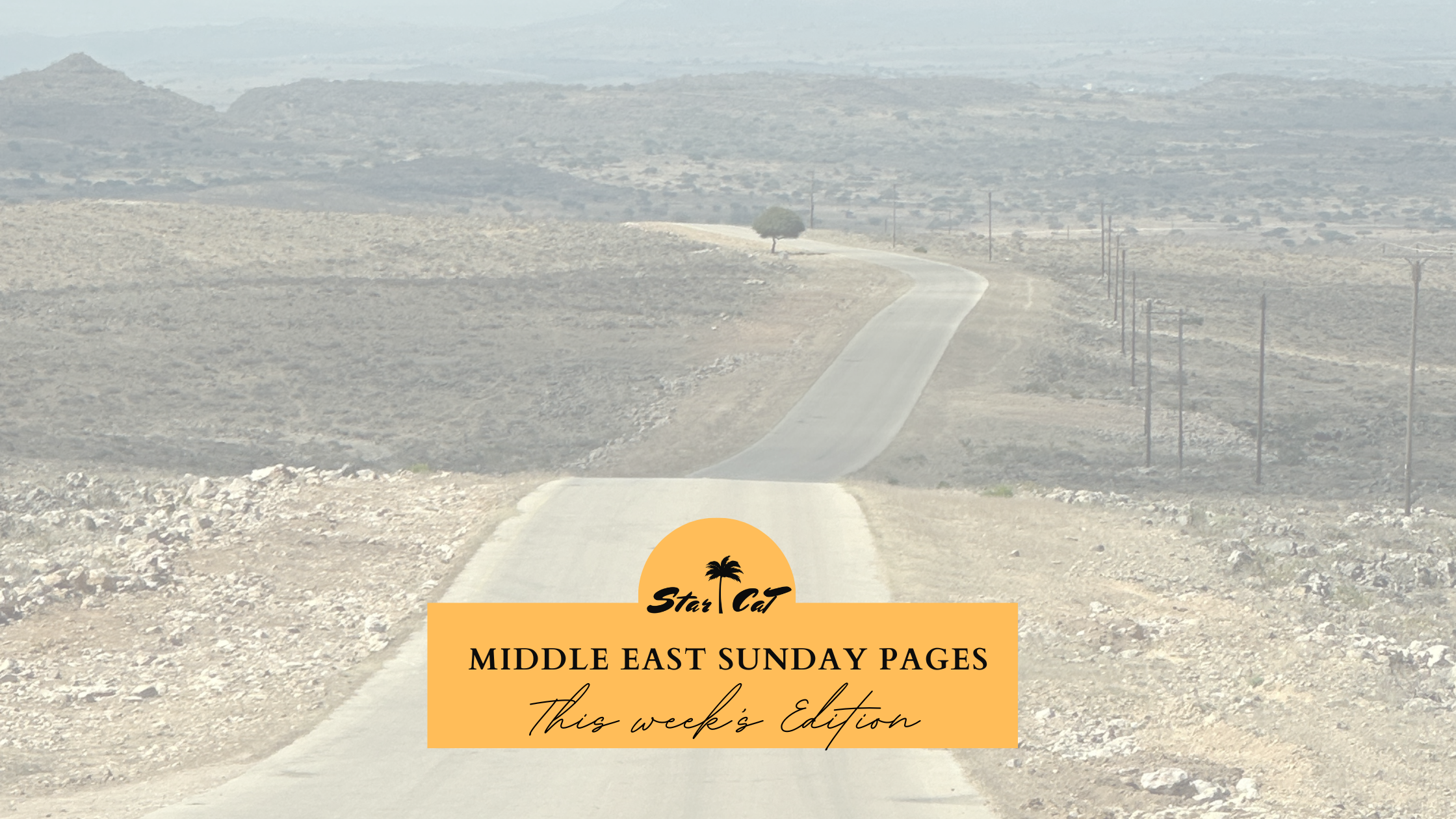
Ramadan Etiquette for Westerners: Navigating Gulf Business during the Holy Month
As Ramadan approaches, Western professionals engaging in business in the Gulf region must adapt their practices to align with this sacred month of reflection, community, and tradition. Understanding and respecting Ramadan etiquette is crucial for maintaining strong relationships and demonstrating cultural sensitivity. Let’s explore how Ramadan influences business in the Gulf and provide essential tips for navigating this period with respect and success. You can download our free Ramadan Guide for Westerners here.
How Ramadan Influences Business
Shorter Work Hours
During Ramadan, both government and private sector offices in Gulf countries typically operate on reduced hours. In the UAE, for example, the work day is shortened by a minimum of two hours for both Muslim and non-Muslim workers. This reduction in working hours affects availability and response times, so it is important to adjust your expectations and planning accordingly.
Shifts in Priorities
Ramadan emphasises spiritual activities over business matters. This shift in focus often results in a slower pace of decision-making and deal closures. Many business leaders in the Gulf may choose to travel during Ramadan or focus on building relationships rather than closing deals. Understanding this change in priorities is essential for managing your business expectations during this period.
Increased Focus on Relationships
Networking during Ramadan often happens over Iftar, the meal that breaks the fast at sunset. These gatherings provide excellent opportunities for building personal connections, which are highly valued in Gulf business culture. It’s important to note that business discussions typically take a backseat during these social events, as the focus is on strengthening relationships and community bonds. Read about building better relationships and win clients in the Middle East here.
Cultural Sensitivities
Fasting from dawn to sunset is a core aspect of Ramadan observance. Public eating, drinking, or smoking during daylight hours is not only considered disrespectful but can also be illegal in some Gulf countries. In the UAE, for instance, doing so could result in a fine or even a jail sentence. Make sure you understand these important dates and how this can help your business by getting our 2025 Middle East Planner.
Tips for Respectful and Effective Business Practices
Adjust Meeting Schedules
Be mindful of the reduced work hours and energy levels when scheduling meetings during Ramadan. Many businesses in the Gulf operate different hours during this period, with government offices often working from 9 am to 2 pm. It’s advisable to schedule important meetings in the morning when energy levels are higher. Alternatively, consider arranging meetings after Iftar or later in the evening when many professionals are more available and refreshed. It is not advisable to plan a regular trip for business during this time.
Respect Fasting Practices
Even if you are not fasting, it is crucial to avoid eating, drinking, or smoking in public spaces during daylight hours. This extends to the workplace, where eating and drinking are typically not permitted in office areas (except in designated spaces) during fasting hours. When hosting meetings, ensure that food and drinks are not visible to those who are fasting.
Embrace the Iftar Opportunity
If you receive an invitation to an Iftar meal, consider it an honour and an excellent opportunity to build deeper relationships. Many hotels and restaurants in Gulf countries offer special Iftar buffets or packages during Ramadan. When attending, it’s customary to bring a small gift for the host, such as a box of dates or a selection of dried fruits. Use this time to engage in conversations beyond business, focusing on building genuine connections with your Gulf counterparts.
Be Patient and Flexible
During Ramadan, individuals prioritise family, spirituality, and community over business matters. This shift in focus can lead to longer decision-making processes and potential delays in project timelines. Show understanding and flexibility in your approach, as this patience will be appreciated by your Gulf partners and contribute to stronger long-term relationships.
Show Cultural Awareness in Communications
Incorporate respectful phrases in your business communications during Ramadan. Use greetings such as “Ramadan Kareem” (Generous Ramadan) or “Ramadan Mubarak” (Blessed Ramadan) in your emails or at the beginning of meetings. This simple gesture demonstrates your cultural awareness and respect for local traditions.
Avoid scheduling important deadlines or meetings during the final days of Ramadan or during Eid al-Fitr, the festival marking the end of Ramadan. These are times of celebration and family gatherings, and business activities are typically put on hold.
The Importance of Cultural Sensitivity
Demonstrating cultural sensitivity during Ramadan goes beyond avoiding missteps; it significantly strengthens your relationships with Gulf partners. Your respect for their traditions showcases your adaptability and commitment to long-term success in the region. This approach aligns with the Gulf business culture, which values trust and personal connections as foundational elements of successful partnerships.
It is important for any Western teams to understand local customs – if this is a new area for your team enquire about a Training with us.
Additional Considerations for Westerners
Dress Code
During Ramadan, it is particularly important to dress modestly and conservatively. Both men and women should avoid wearing outfits that expose the shoulders and knees. This shows respect for the increased emphasis on modesty during the holy month.
Charity and Social Responsibility
Ramadan is a time of increased charitable giving in Gulf countries. Consider engaging in or supporting local charitable initiatives during this period. This aligns with the spirit of Ramadan and can enhance your company’s reputation in the community.
Virtual Meetings
If you are conducting business remotely with Gulf partners during Ramadan, be mindful of cultural sensitivities even in virtual settings. Avoid eating or drinking on camera during video calls, and be considerate of prayer times when scheduling meetings.
Navigating business in the Gulf during Ramadan requires a nuanced understanding of local customs and a willingness to adapt your practices. By embracing Ramadan etiquette, you demonstrate that you value your partners’ culture and traditions, which is fundamental to building trust and fostering long-term success in the region.
We offer a VIP day that will prepare you fully for all local nuances so you can avoid any faux pas. Enquire here.
Remember, in Gulf business culture, relationships are paramount. Your efforts to respect and participate in Ramadan traditions will be noticed and appreciated, potentially opening doors to deeper connections and more fruitful partnerships. As you navigate this holy month, approach your business interactions with patience, flexibility, and genuine interest in the cultural significance of Ramadan.
By following these guidelines and maintaining a respectful, culturally sensitive approach, Western professionals can successfully navigate the unique business landscape of the Gulf during Ramadan. This understanding and adaptability will serve you well not just during the holy month, but in all your future endeavours in this dynamic and culturally rich region.









This Post Has 0 Comments